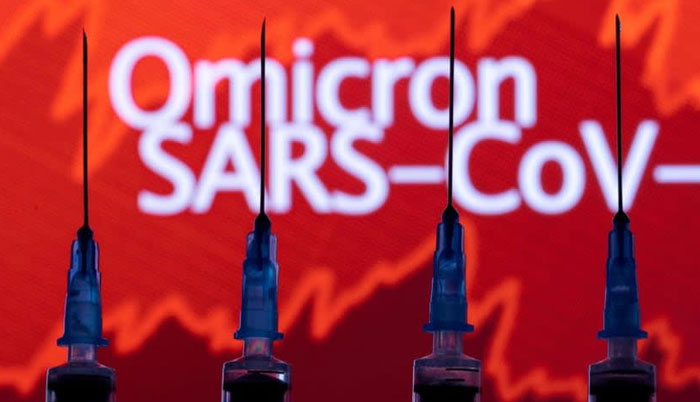![]() Home > Singapore
Home > Singapore
Impending Omicron Wave Could Mean Up To 15,000 Cases A Day In Singapore: MOH Official

Reuters | In line with the global experience, Singapore could be seeing 10,000 to 15,000 daily cases at the peak of the upcoming wave of infections of the Covid-19 Omicron variant, MOH director of medical services Kenneth Mak said on Jan 5, 2021.
![]() January 6th, 2022 | 11:49 AM |
January 6th, 2022 | 11:49 AM | ![]() 1629 views
1629 views
SINGAPORE
Singapore's upcoming Omicron wave could peak at 15,000 cases a day, which is several times that of the Delta wave last year that saw numbers surge to around 5,000 a day.
Associate Professor Kenneth Mak, director of medical services at the Ministry of Health (MOH), said at a press conference on Wednesday (Jan 5) that this is consistent with the experience of other countries such as Britain, Denmark and South Africa, though emerging data shows that fewer patients require hospitalisation and oxygen support.
At present, infections caused by the Omicron virus strain comprise an average of about 18 per cent of all Covid-19 cases here and are expected to rise further due to variant's more infectious nature.
The Government's Covid-19 task force, of which Assoc Prof Mak is a member, "definitely expect" the virulent strain to create a new wave of infections.
"We will watch the situation closely to see if the increase in case numbers reported over the last two days reflects the start of such a wave in Singapore," he said.
Health Minister Ong Ye Kung, co-chair of the task force, said that Singapore experienced around 3,000 cases of Delta infections each day between late October and early November last year, doubling at a rate of between six and eight days.
In contrast, Omicron infections may double in two to three days.
So far, Singapore has had 2,252 cases of the Omicron variant and three of the patients had required oxygen supplementation. No one infected by the virus strain has needed intensive care so far.
Assoc Prof Mak said that although global data shows that Omicron carries a lower risk of hospitalisation and severe infections compared to the Delta variant, its overall infectivity could still lead to a "significantly higher absolute number" of hospitalisations.
Studies show a 67 to 80 per cent lower risk of hospitalisation for the new strain when compared with Delta, and the observed risk among those hospitalised who then get severe infection is around 70 per cent lower.
In Britain, however, the increased numbers of hospitalisations overall had threatened to overwhelm hospitals, even if the occupancy of intensive care unit (ICU) wards remained manageable, Assoc Prof Mak added. Healthcare workers could also fall ill, further compounding the issue.
"The lesson is not lost on us and reminds us not to be complacent with the local infection numbers that we presently see in Singapore," he said.
Singapore now operates more than 1,200 beds for adult and children infected with Covid-19 in public hospitals, and the current bed occupancy is under 28 per cent for adult patients.
Fewer than 44 per cent of all ICU beds in public hospitals are occupied by critically ill patients, and about 7 per cent for ICU beds are dedicated to receive Covid-19 patients.
The country is "well able to deal with the cases that have been tested over the last few weeks", and can cater to the needs of these non-Covid patients for now, Assoc Prof Mak said.
"We are, however, careful not to allow excessive drawing down or the isolation and ICU beds set aside for Covid-19 as the situation and the community may change very quickly."
Source:
courtesy of TODAY
by NG JUN SEN
If you have any stories or news that you would like to share with the global online community, please feel free to share it with us by contacting us directly at [email protected]